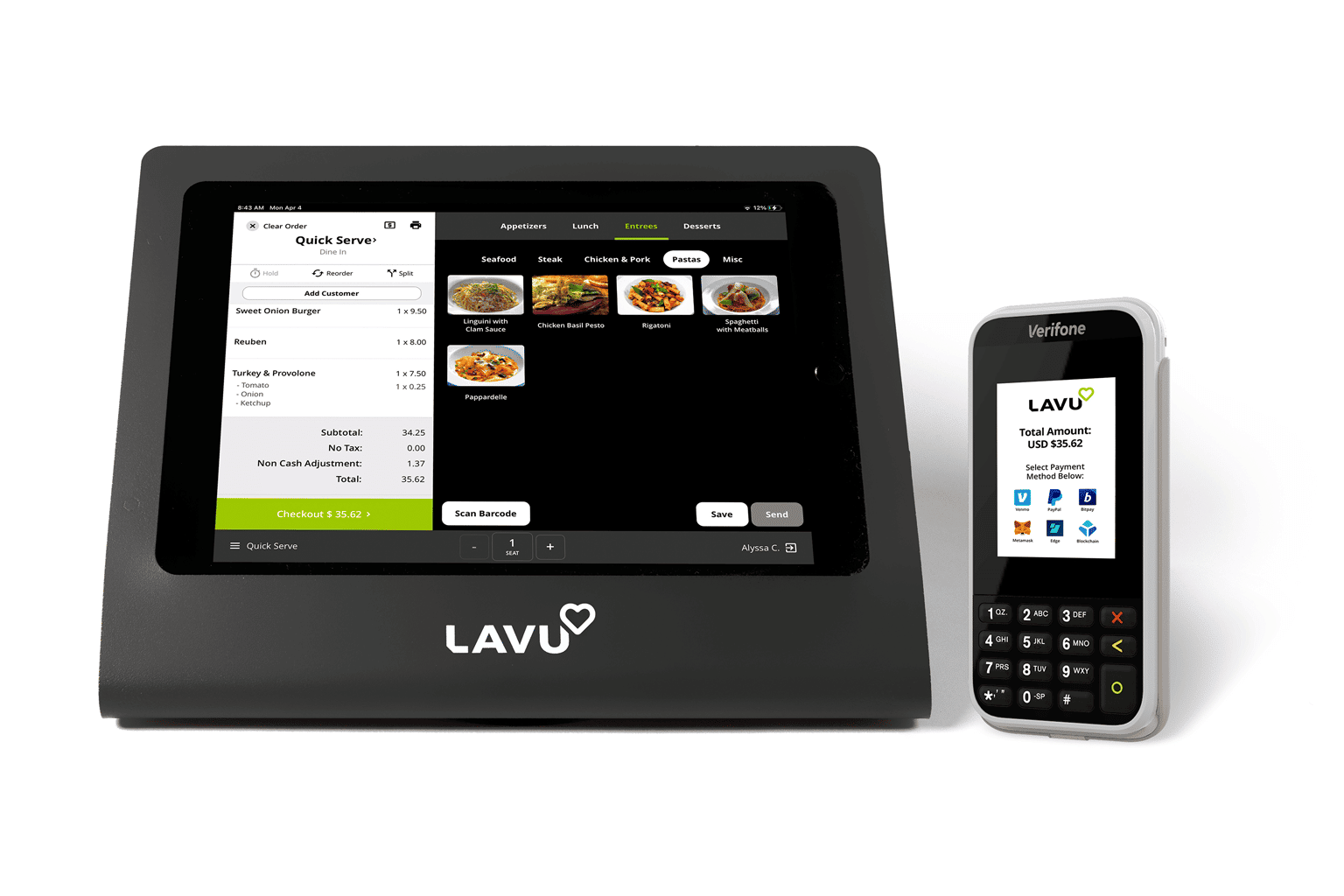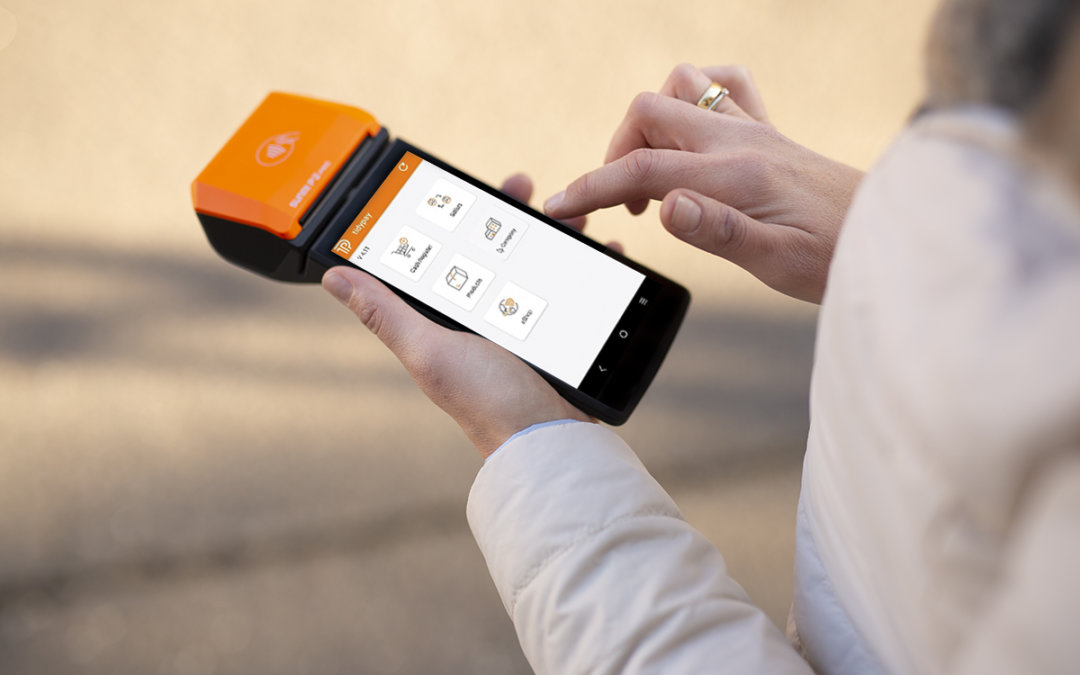Understanding the Importance of POS Software Application in Modern Retail Workflow
In today's retail landscape, the duty of POS software application has come to be progressively substantial. These systems have actually transformed from standard sales register to multifaceted tools that boost different aspects of procedures. They not only simplify purchases but additionally offer insights that can shape service methods. Understanding just how these systems effect consumer experience and supply monitoring is vital for any retailer looking for to remain affordable. The implications of these innovations call for additional exploration.
The Advancement of POS Software: From Deal Processing to Comprehensive Solutions
As retail settings progressed, so too did the performance of Factor of Sale (POS) software, which moved from standard transaction processing systems to innovative, extensive services. POS systems mainly handled sales deals, taking care of cash registers and printing invoices. With developments in innovation, these systems started incorporating supply management, client connection administration, and sales analytics. Retailers acknowledged the requirement for seamless procedures and real-time information, triggering the advancement of cloud-based POS solutions that permitted remote access and boosted scalability.Additionally, the surge of mobile business demanded POS systems to adjust, making it possible for deals via tablets and smartphones. This change not only streamlined procedures however additionally enhanced reporting abilities, allowing stores to make enlightened decisions based on complete data understandings. Modern-day POS software program has actually become essential to retail technique, offering as a multifunctional device that supports different functional aspects beyond plain purchase handling.
Enhancing Consumer Experience Through Advanced POS Includes
While many merchants focus on functional efficiency, progressed POS functions progressively focus on improving the customer experience. Modern POS systems currently offer capabilities such as mobile repayment alternatives, personalized promos, and client commitment programs, which foster an even more engaging shopping setting. By improving the check out procedure, these systems minimize wait times, permitting customers to total transactions swiftly and efficiently.Additionally, integrated customer connection monitoring (CRM) functions allow retailers to track buying choices and habits, assisting in customized marketing efforts. This personalization not only builds client loyalty yet additionally boosts overall satisfaction.Moreover, advanced analytics supplied by POS systems can assist stores understand customer fads and preferences, enabling them to make educated choices concerning item offerings and store designs. Inevitably, the concentrate on consumer experience through advanced POS includes not just meets modern customer expectations but additionally drives repeat company and boosts income for sellers.
Simplifying Supply Administration With Integrated POS Systems
Integrated POS systems play a vital function in streamlining inventory monitoring by automating processes that traditionally required significant hand-operated initiative (Restaurant POS Software). These systems enable merchants to track stock levels in real time, removing disparities that typically emerge from hands-on stock matters. With attributes such as barcode scanning and automatic stock replenishment signals, services can maintain suitable inventory degrees without overstocking or stockouts.Furthermore, integrated POS systems facilitate precise projecting by assessing historical sales information, enabling stores to make educated purchasing decisions. This anticipating capacity assists companies adapt to altering consumer needs and seasonal trends extra effectively.Additionally, the centralization of stock data across numerous sales channels enhances visibility, allowing retailers to manage their supply much more efficiently. Inevitably, the combination of POS systems into inventory management simplifies procedures, minimizes human mistake, and adds to increased success
Real-Time Sales Tracking and Coverage for Informed Decision-Making
Precise supply monitoring lays the groundwork for efficient sales tracking and reporting. Real-time sales tracking makes it possible for retailers to keep an eye on sales efficiency as it takes place, providing immediate understandings right into customer purchasing patterns and trends. This capacity allows organizations to respond swiftly to changes sought after, optimizing stock degrees and reducing overstock or stockouts.Moreover, integrated POS systems facilitate the generation of thorough records, highlighting essential metrics such as sales by category, amount of time, and specific products. Such reporting abilities encourage stores to make data-driven choices, recognizing effective strategies and areas needing improvement.

The Duty of POS Software in Customer Connection Monitoring
POS software program plays a vital duty in enhancing client partnership administration by enabling stores to execute individualized advertising and marketing methods. By examining consumer information, services can customize promotions and communications to meet specific choices. Furthermore, these systems assist in the advancement of improved commitment programs that urge repeat organization and strengthen customer engagement.
Personalized Marketing Methods
As retailers progressively seek to boost customer commitment and interaction, personalized advertising and marketing approaches have actually become a vital element of effective client partnership monitoring. POS software program plays a vital role in this procedure by evaluating and collecting client data, allowing retailers to customize marketing initiatives to individual choices and shopping habits. By leveraging insights from purchase backgrounds, merchants can develop targeted promos and individualized interactions that resonate with customers, fostering a deeper link. In addition, the integration of POS software application with client relationship management systems permits seamless tracking of client interactions, making certain that marketing techniques stay appropriate and prompt. This data-driven method not only enhances consumer contentment but additionally motivates and drives sales repeat organization, solidifying the store's market placement.
Enhanced Commitment Programs
Retailers are progressively identifying the significance of loyalty programs in fostering long-lasting client partnerships and enhancing overall interaction. POS software application plays an important function in the growth and administration of these programs, permitting sellers to track consumer actions, preferences, and acquisitions efficiently. By leveraging information analytics, businesses can create personalized benefits and motivations that reverberate with private consumers, thus raising engagement in commitment programs. Additionally, POS systems enable smooth assimilation with mobile apps and digital systems, facilitating easy accessibility to promos and incentives. This not only improves consumer fulfillment but likewise drives repeat service. Eventually, POS software encourages sellers to grow deeper links with their customers, transforming occasional shoppers right into loyal clients via targeted and significant engagement techniques.
Integrating POS Solutions With Shopping Operating Systems for Omnichannel Success
To attain true omnichannel success, smooth assimilation between point-of-sale (POS) systems and e-commerce platforms is essential. This combination enables stores to combine their stock management, making sure that item schedule is properly shown across both online and physical stores. Clients gain from a cohesive shopping experience, where they can easily change between channels without running into discrepancies.Furthermore, integrated systems promote real-time information sharing, allowing businesses to assess consumer behavior and choices better. This data-driven technique allows merchants to customize marketing techniques and enhance stock levels, inevitably boosting customer contentment and driving sales.Additionally, the capability to process purchases across systems streamlines operations, decreasing the threat of mistakes and improving general effectiveness. As sellers increasingly adopt omnichannel methods, the combination of POS systems with e-commerce platforms remains an essential aspect in attaining lasting growth and preserving affordable advantage in the vibrant retail landscape.

Future Fads in POS Technology and Their Influence On Retail Operations
As retail procedures progress, future patterns in POS technology are readied to improve the landscape considerably. The rise of cloud-based remedies, innovations in mobile POS systems, and the advantages of AI assimilation are among the vital advancements expected to improve efficiency and customer experience. These advancements promise to enhance procedures and promote a much more vibrant retail atmosphere.
Cloud-Based Solutions Rise
With the enhancing reliance on technology, cloud-based POS solutions are transforming retail operations by supplying improved flexibility and scalability. These systems enable stores to gain access to real-time data from anywhere, helping with better decision-making and consumer solution. By leveraging cloud facilities, companies can reduce upfront prices connected with software and hardware my site setups while guaranteeing smooth updates and upkeep. Furthermore, cloud-based solutions sustain multi-location monitoring, enabling stores to synchronize stock and sales throughout various outlets easily. This versatility is necessary in today's fast-paced market, where consumer choices shift quickly. As more sellers take on these remedies, they can expect enhanced functional effectiveness and a much more receptive approach to market Read Full Article needs, ultimately improving customer complete satisfaction and commitment.
Mobile POS Innovations
The evolution of retail innovation continues to shape procedures, specifically with the increase of mobile POS innovations. These systems enable merchants to refine transactions anywhere within the store, boosting client interaction and simplifying check out procedures. Mobile POS solutions enhance stock administration by allowing immediate access to stock degrees, aiding team aid customers much more effectively. On top of that, they facilitate individualized shopping experiences with incorporated client data and loyalty programs. As smart phones end up being progressively advanced, stores are taking on attributes such as electronic receipts and contactless payments, additionally maximizing the acquiring trip. The change towards mobile POS not only increases functional effectiveness however additionally lines up with the growing consumer preference for convenience, ensuring that retailers remain affordable in a rapidly advancing market.
AI Assimilation Benefits
AI assimilation stands for a transformative jump in POS innovation, providing sellers a myriad of benefits that boost operational performance and customer experience. By leveraging artificial intelligence algorithms, retailers can analyze buying patterns and optimize supply administration, decreasing waste and stockouts. In addition, AI-powered analytics offer individualized advertising and marketing suggestions, enabling targeted promotions that increase consumer interaction and loyalty (Restaurant POS Software). Furthermore, chatbots and digital aides streamline customer care, allowing for quicker resolution of questions and improving the total shopping experience. Predictive analytics can likewise forecast need fads, enabling smarter staffing and source allotment. Inevitably, the assimilation of AI in POS systems equips retailers to make data-driven decisions, fostering an affordable edge in an ever-evolving retail landscape
Often Asked Inquiries
What Are the Prices Linked With Implementing POS Software?
The costs connected with carrying out POS software application can include software licensing fees, equipment expenditures, setup fees, training expenses, and ongoing upkeep. Each element adds to the total investment essential for an effective application.
How Can Small Retailers Gain From POS Equipments?

What Hardware Is Required for a POS System?
A normal POS system needs crucial hardware elements, including a touchscreen display, money drawer, barcode scanner, receipt printer, and settlement terminal. These elements work together to facilitate effective purchase processing and supply management for merchants.
Can POS Software Program Be Custom-made for Certain Retail Demands?
POS software can without a doubt be personalized to satisfy specific retail requirements. This adaptability enables services to customize features, interfaces, and reporting devices, boosting functional performance and supplying an extra customized experience for both staff and consumers.
How Protected Is Consumer Data in POS Solutions?
The safety and security of client data in POS systems varies widely. Lots of systems carry out security, secure access controls, and normal updates, but susceptabilities can still exist, necessitating ongoing vigilance and proactive steps from sellers to protect sensitive information. By enhancing the checkout process, these systems decrease wait times, permitting consumers to complete purchases promptly and efficiently.Additionally, integrated client connection administration (CRM) functions enable stores to track acquiring actions and preferences, facilitating customized advertising and marketing initiatives. As merchants significantly look for to enhance customer loyalty and interaction, personalized marketing techniques have arised as a crucial part of efficient customer partnership monitoring. Furthermore, the assimilation of POS software application with client relationship administration systems enables for smooth tracking of customer interactions, making sure that marketing techniques remain timely and appropriate. Clients profit from a cohesive buying experience, where they can easily switch over between networks without experiencing discrepancies.Furthermore, integrated systems facilitate real-time information sharing, making it possible for businesses to examine customer behavior and choices more successfully. Little sellers can profit from POS systems through enhanced purchase efficiency, streamlined stock monitoring, and improved client understandings.